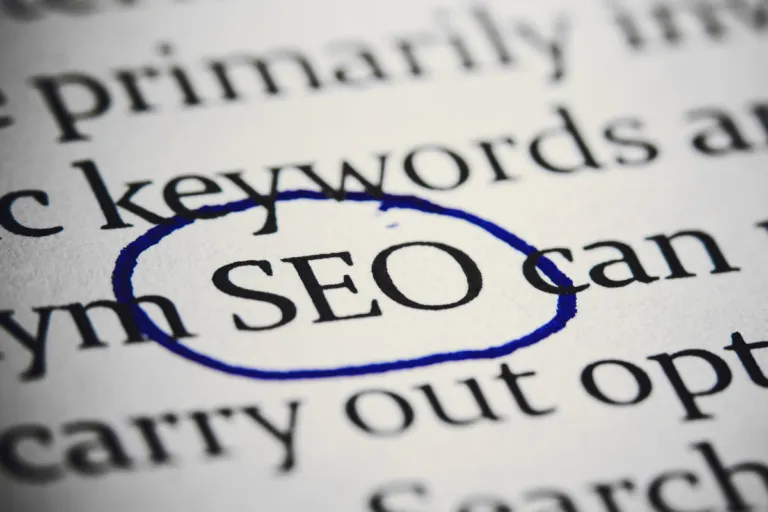Getting Better Search Engine Ranking Results with These On-Page SEO Tactics
Every day, millions of people type keywords and phrases into internet search engines. Those search engines display their recommendations onto search results pages. How does it do that? It is based on its review of millions of web pages AND its ranking of those pages.
Every business asks themselves and their marketing departments this one question – “How do we get to the top of the page 1 search results for our category or industry?”
The answer to that question is never a single, ‘magic bullet’ solution. Getting higher rank results on search requires a combination of several factors.
But, one of the top factors for achieving page 1 visibility in search these days is QUALITY CONTENT.
What is SEO?
SEO (an acronym for ‘Search Engine Optimization) refers to all the practices aimed at making your website visible on a search engine (in the organic results). Having good SEO requires a lot of effort and technical knowledge. It is not a ‘one-time’ effort.
This is the reason why website owners usually hire an SEO agency. The search engine indexes online pages according to complex algorithms that determine their relevance and then arrange these files in an intelligible order. To become visible on the search results page, you need to understand how this algorithm works. And you need to optimize the site based on the search algorithms.
The process of search optimization involves proper web page design and structure. This includes the creation of engaging content writing, proper website coding, programming, and scripting.
When you think SEO, you must think visibility with the aim of being displayed on the first page of search results for keywords relevant to your business and your customers.
And perhaps the most beautiful definition for search engine optimization is:“SEO is the art and science of publishing information in a format that will convince search engines that your content meets their users’ needs for relevant queries.”
Why can’t search engines load my website without SEO optimization?

Search engines are smart, but they need help. Google, for example, is constantly refining the algorithm to produce the best results for the searcher.
And, Google, Bing, Yahoo, and other search engines are also competing for your search business. They want your search experience to be great, so that you continue to use their platform for future searches.
For that reason, they attempt to display the best search results that they can. They attempt to understand what the searcher is looking for and serve the best information to meet their needs.
If your website pages do not look like useful pages, they will not rank your website well.
What makes your website appear useful and relevant to the search engines? The same things that you would consider –
· How many people have visited your pages?
· How long did they remain on those pages? (If they stay on the page for several minutes, the search engines tend to think that the information on the page is relevant.)
· Are there other more well-known websites linking over to the information?
· Does the search engine find words and/or phrases on the page that relate well to the search request?
It’s not much different than the ‘popularity contest’ that we humans can sometimes take part in…. who do you know, how popular are you, and what knowledge do you contain?
So, using the right (‘white hat’) techniques, search engine optimization can help your website get on the right path to becoming more ‘popular’ and more visible online.
But, you have to go about it correctly. Because, if you use ‘black hat’ techniques to ‘game’ the system, your site will get punished in ranking – making it worse for your website’s visibility. These negative techniques include ‘keyword stuffing’, ‘private backlink networks’, and ‘cloaking’. If anyone recommends tactics like this, you should distance yourself from them.
We can divide SEO optimization into two basic segments:
1. ON-page SEO
2. OFF-page SEO
On-pageseo optimization affects all visible elements on on your website – text, visuals, links, page url, page titles, and font tags.
And this also includes the ‘freshness’ of the content. The search engines might interpret unchanged, old content as stall and irrelevant.
Off-pageoptimization includes all external references to your website. This could include links back to your site from other websites. These factors help the search engines know what others think of your site.
Other off-page elements include authority rankings of your website and the sites that link to you. It also includes social media activities.
What are meta tags?
Meta tags are a piece of HTML code that is only visible to the person who is looking for it. These tags are not visible in the web browser, unless you are exploring the page source info. These tags provide information to search engine robots, also called spiders and crawlers.
The information they provide includes keywords, meta descriptions, and a website title. Some browsers do not use this information while others display it.
Internet spiders and robots
Spiders, crawlers, and robots are names given to the internet search engine tools. Search engines use them to scan sites and gather information. This information is then indexed and filed in large databases.
What are the allowed (white hat) SEO techniques?
SEO terminology defines white hat SEO as using strategies, techniques, and tactics that are directed at people rather than at search engines, using the rules and guidelines given by search engines. Permitted optimization techniques include:
- applying relevant, high-quality keywords in the text and description of the site
- linking to the site from various relevant sources
- creating quality content directed to site visitors.
What are the prohibited (black hat) SEO techniques?
Black hat SEO techniques are the application of various methods made to manipulate search engines to get results as quickly as possible.
Some of the ‘black hat’ SEO techniques and tactics are:
- cluttering the page and content with on-page seo keywords we want to rank our site with (keyword stuffing)
- adding the keywords which in no way matches the content of the page
- adding text which is not visible to users but is visible to search engines
- as well as page swapping, which involves completely changing the page with other content after such a page is ranked well in search.
Fun Facts
Did you know? Google has empowered over 200 rules and guidelines that every website must follow to rank well in search
How long does it take to improve the ranking of a website?
In general, search engines are searching website pages monthly. Some search engines, like Google, can review pages more frequently. So every change made to the website to improve its relevancy can take a few of these update ‘cycles’ to start reflecting in search results.
Want to get a FREE, no obligation review of your business website’s SEO?
Contact us today!








